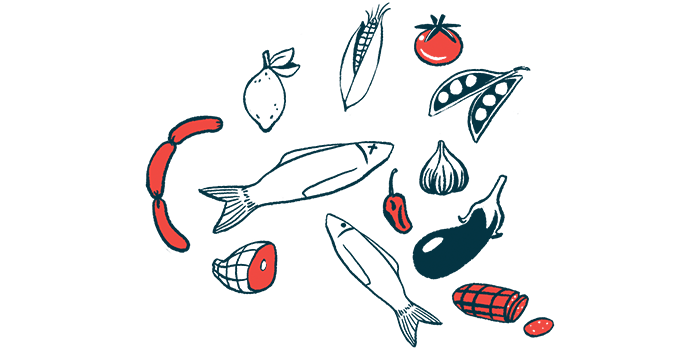Eating Beans, Vegetables May Reduce MS Risk
Written by |

Eating a lot of green leafy and other vegetables, beans, nuts and berries seems to significantly lower the likelihood of developing multiple sclerosis (MS), according to a study from Iran.
The findings also suggest that the chances of developing the disease may be higher in people who eat more cheese, poultry, sweets, and fried foods.
The study, “MIND Diet Adherence Might be Associated with a Reduced Odds of Multiple Sclerosis: Results from a Case–Control Study,” was published in Neurology and Therapy.
The food that people eat has a profound effect on their health, and a number of studies have suggested that dietary habits may influence the development of diseases such as MS. However, the specific effect of any given diet or food type on MS risk remains poorly understood.
Here, a team of scientists in Iran were interested in assessing whether a dietary style called the Mediterranean–DASH Intervention for Neurodegenerative Delay (MIND) diet might be protective for MS. MIND takes inspiration from the Mediterranean diet, as well as a diet called DASH that is used to manage high blood pressure.
In combination, these diets promote the consumption of foods thought to benefit neurodegenerative disorders. Adherence to the MIND diet is based on the consumption of “brain healthy” and “unhealthy” foods.
Brain healthy foods include green leafy vegetables, other vegetables, nuts, berries, beans, whole grains, fish, poultry, olive oil, and wine. In contrast, unhealthy foods include red meat, butter or margarine, cheese, pastries and sweets, and fried and fast foods.
The MIND diet “encourages natural plant-based meals and limits animal-based/high in saturated fat foods,” the researchers wrote.
The team conducted interviews about dietary habits with 77 people with newly diagnosed relapsing-remitting MS, and 148 controls without MS. Relative to the MS patients, the controls generally were older and had a higher body mass index (BMI). Controls consumed fewer calories and total carbohydrates, but ate more fiber and animal-based proteins than patients.
Based on each individual’s dietary habits, the researchers assigned a MIND score, basically reflecting how closely the person’s usual diet resembled the MIND diet. Statistical analyses showed that, after adjusting for between-group differences, participants in the top third of MIND score were about 90% less likely to develop MS.
“Studying the MIND diet score in this retrospective research shows that higher adherence to the overall MIND dietary pattern may protect against MS,” the researchers wrote. “According to these findings, even a moderate level of MIND diet adherence may significantly impact the prevention of MS.”
The odds of MS also were significantly lower among the third of participants who reported the highest consumption of green leafy vegetables, other vegetables, and beans. The researchers noted that vegetables and greens are high in antioxidants and anti-inflammatory compounds like polyphenols, which may explain these associations.
MS risk also was lower in the third of patients with the highest consumption of butter and stick margarine. These are generally considered unhealthy, and the researchers cautioned this association may be due to many different foods (e.g., soft and hard margarine) being classified as a single group.
By comparison, the risk of MS was higher among the third of participants with the greatest intake of cheese, poultry, pastries and sweets, and fried or fast foods.
“According to the present outcomes, fast fried food consumption more than once per week increased the odds of MS by 32.8 times compared to eating this type of food less than once a week,” the researchers wrote.
The team noted that these dietary trends may explain, in part, the relatively high prevalence of MS in western societies, where diets tend to be rich in salts, fats, and sugars.
The researchers stressed a need for more research, including controlled trials, to evaluate whether dietary changes may help to prevent or manage MS.



